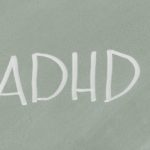Individuals in recovery may struggle with unhealthy behaviors that contributed to the development of their substance use disorder (SUD). For some people, that can include control issues related to anxiety, compulsions, or mental health disorders. The need to feel in control can interfere with your relationships and recovery goals.Â
Rehabilitation programs like the ones offered at Newport Beach Recovery Center can help you find healthier ways to manage your emotions. According to the National Institute on Drug Abuse (NIDA), “Treatment enables people to counteract addiction’s disruptive effects on their brain and behavior and regain control of their lives.” You can get all the tools you need to overcome maladaptive forms of control and heal from substance misuse.Â
The Relationship Between Control Issues and Substance MisuseÂ
Often, SUD starts as a form of self-medication. For some people, substance misuse provides a single area where they feel in complete control of their life. Substance misuse offers them an artificial sense of being in control. When they lose control over their substance misuse, they begin to look for other forms of control. In addition to substance consumption, individuals with SUD often seek out any form of control, including:Â
- Wanting to feel good or like a “winner”
- A need to regulate emotions and emotional responsesÂ
- Setting unrealistic work, school, or relationships goals and blaming others for failure to meet them
- Needing to be the center of attention in every situation
- Insisting that your personal preferences are the only “correct” ones when discussing relationship issues
Over time, the need to control everything will only lead to further damage. Unfortunately, addictive behaviors affect mental and physical health and significantly worsen side effects related to co-occurring control issues. Â
Signs of a Controlling PersonalityÂ
Controlling people often struggle with conflict. An inability to compromise can impact emotional health and significant relationships. Some common signs that someone may have a controlling personality include:Â
- Chronic self-victimization Â
- Blaming others for personal failuresÂ
- Insisting on maintaining control in most situations even when it inconveniences or causes discomfort for othersÂ
- Selfish behaviorsÂ
- Lack of empathyÂ
- Possessiveness and jealousyÂ
- Difficulty getting along with othersÂ
- Frequent workplace conflictsÂ
- Abandonment and attachment issuesÂ
- Extreme mood swingsÂ
People with controlling personalities rarely take responsibility for the consequences of their actions. If you or someone you love fit these criteria, professional treatment can help. Individual therapy encourages you to develop essential social skills, including conflict resolution and healthier ways to process perceived faults in yourself or others.Â
Underlying Causes of Control IssuesÂ
Everyone has a unique journey. In some cases, that involves personality issues caused by past trauma. Control issues have underlying causes that include:Â
- Family or societal pressure
- TraumaÂ
- Chronic or acute stressÂ
- Relationship issuesÂ
- Low self-esteem and low self-confidence
- Childhood abuse or neglectÂ
- Being raised by a controlling or disinterested parentÂ
Social and family expectations might have left you anxious, depressed, or emotionally overwhelmed. However, prioritizing your life to meet unrealistic personal expectations is not healthy. Sometimes it can lead to the development of control issues that only cause more problems. Getting help is the first step toward complete recovery.Â
Common Control Issues Experienced by Individuals in RecoveryÂ
It’s important to both acknowledge the underlying causes of your control issues and recognize the ways that you can heal yourself. Some common areas affected by control issues that you can change with treatment include:Â
- Relationship miscommunication or manipulationÂ
- Unsustainable workplace pressure
- Social tension caused by enabling or co-dependent behaviors
As discussed, control issues can take many forms and impact different areas of your life. By working through your interpersonal issues and changing your patterns, you’ll feel stronger in your healing.Â
Taking Advantage of Self-Control
Control takes many forms, and in some cases, self-control can positively affect treatment and recovery from SUD. According to Perspectives on Psychological Science, “Self-control enables us to navigate conflicts.†Some healthy forms of self-control include:
- Limiting unhelpful physical behaviors and impulsesÂ
- Emotion regulationÂ
- Managing intrusive thoughts and compulsions Â
- Find creative solutions to problems
Self-control allows you to focus on establishing and achieving recovery goals. Some people obsess over maintaining self-control to the point where it negatively affects their ability to function. You can work with your therapist to find a healthy balance of self-control and self-acceptance.
Healthy Ways to Stay in Control
Despite the negative repercussions of forcing control, there are also ways to use it to your advantage. You can use your controlling personality to your benefit during treatment. A few ways you can take advantage of a need to remain in control include:Â
- Actively participating in every aspect of therapy and treatment to ensure you learn essential skills and toolsÂ
- Permitting yourself to prioritize healthy activities like self-care
- Listening to peers and your care team to get outside perspectives to get a more objective view of your circumstances
Some people use their need to maintain control as motivation to get the most out of every therapy session. However, it is essential to work with your therapist to find healthy outlets for any compulsive thoughts or behaviors. Otherwise, you might find yourself trying to control every aspect of your recovery without first developing the necessary tools.Â
Oftentimes, individuals with control issues misuse substances as a way to self-medicate. The effects of certain substances allow them to meet specific goals or cope with untreated mental health issues. In the end, the damaging effects of substance misuse can worsen control issues and lead to the development of mental health problems like OCD, though. Control issues can also come from undiagnosed personality disorders and learned behaviors. No matter the cause of your control issues, Newport Beach Recovery Center can help you overcome them. During intake, we comprehensively review your history, addiction, and mental health. This allows us to create a truly personalized treatment plan. To learn more about our programs, call us at (855) 316-8740. Start healing today.



